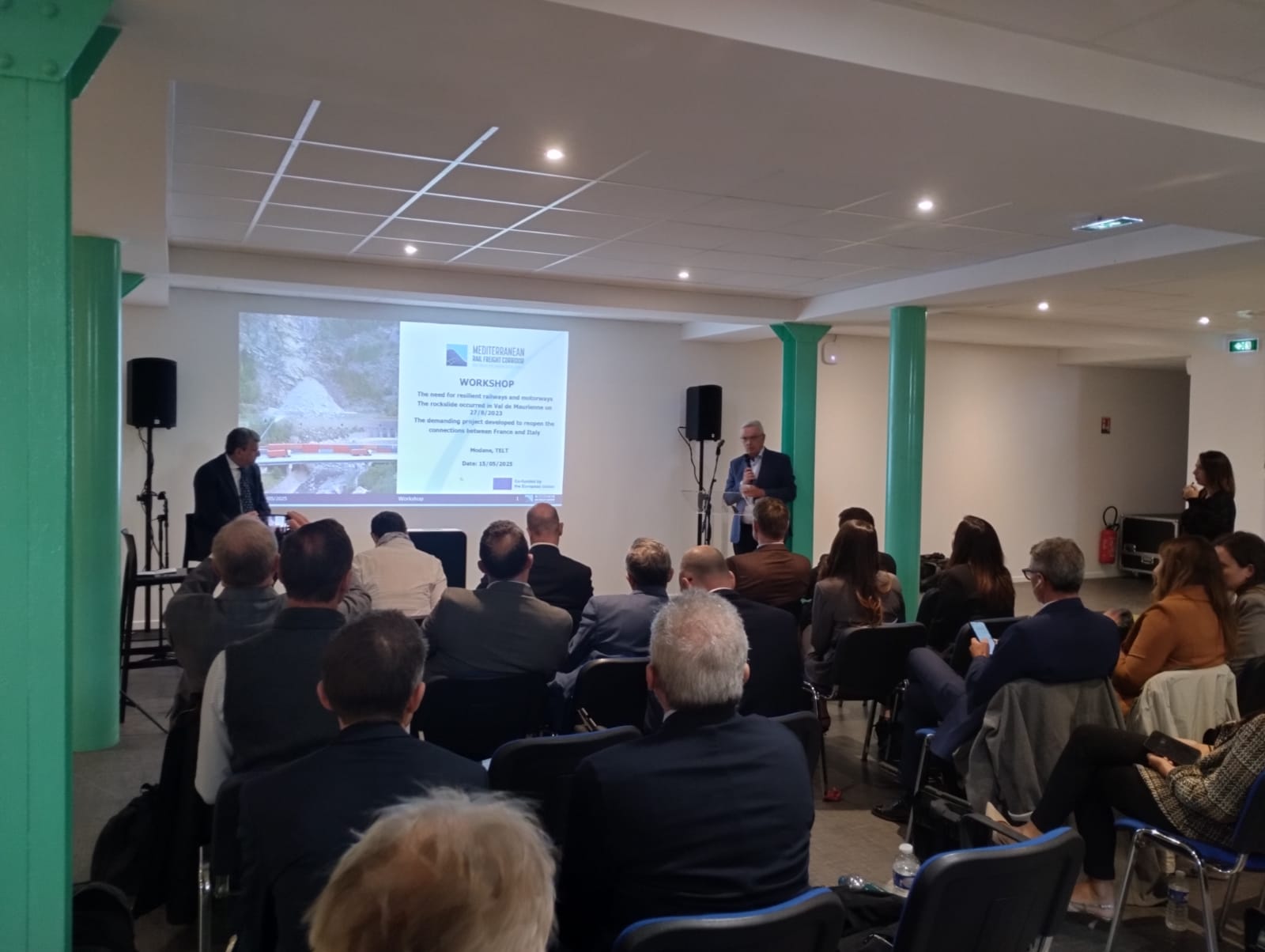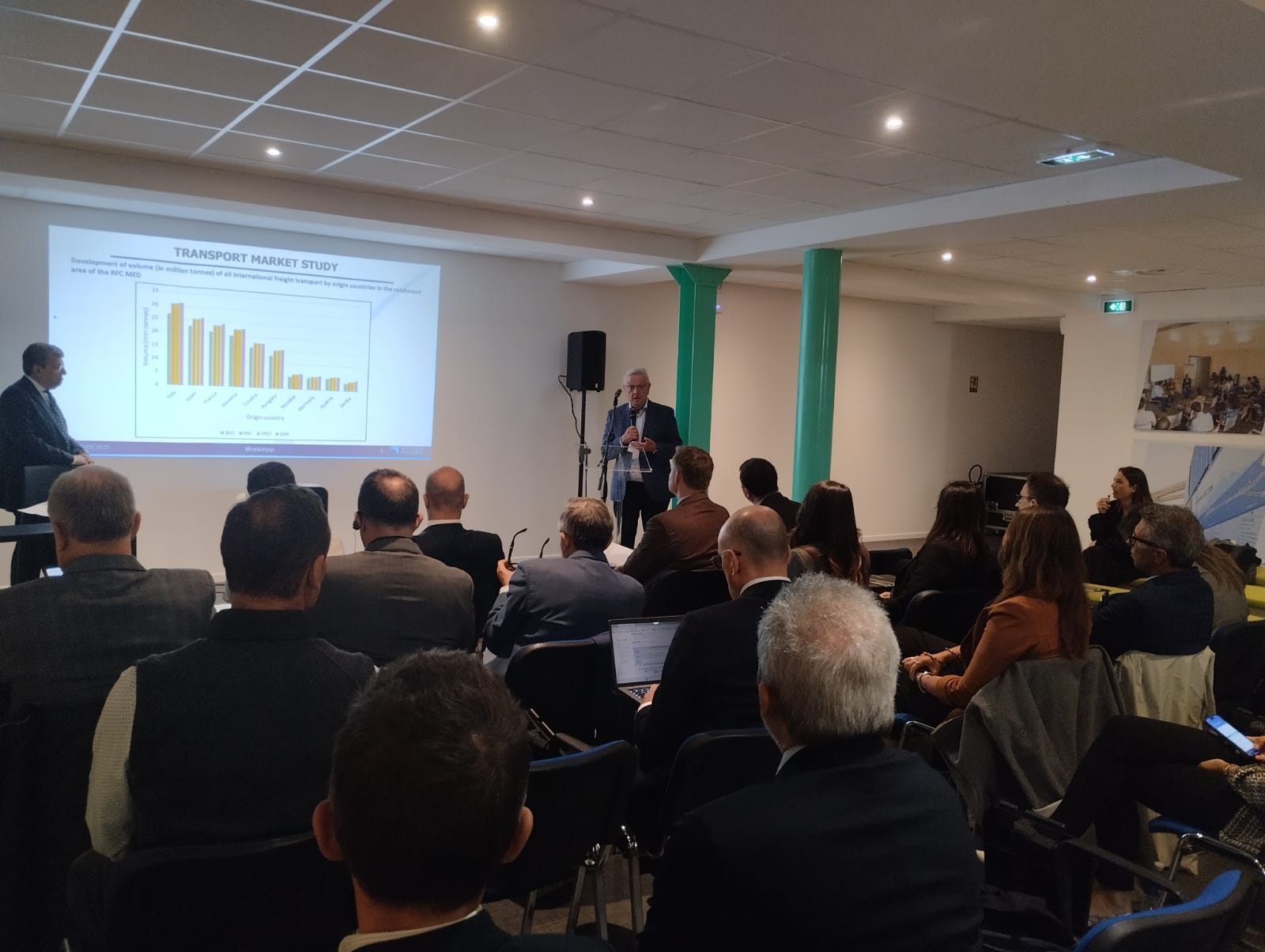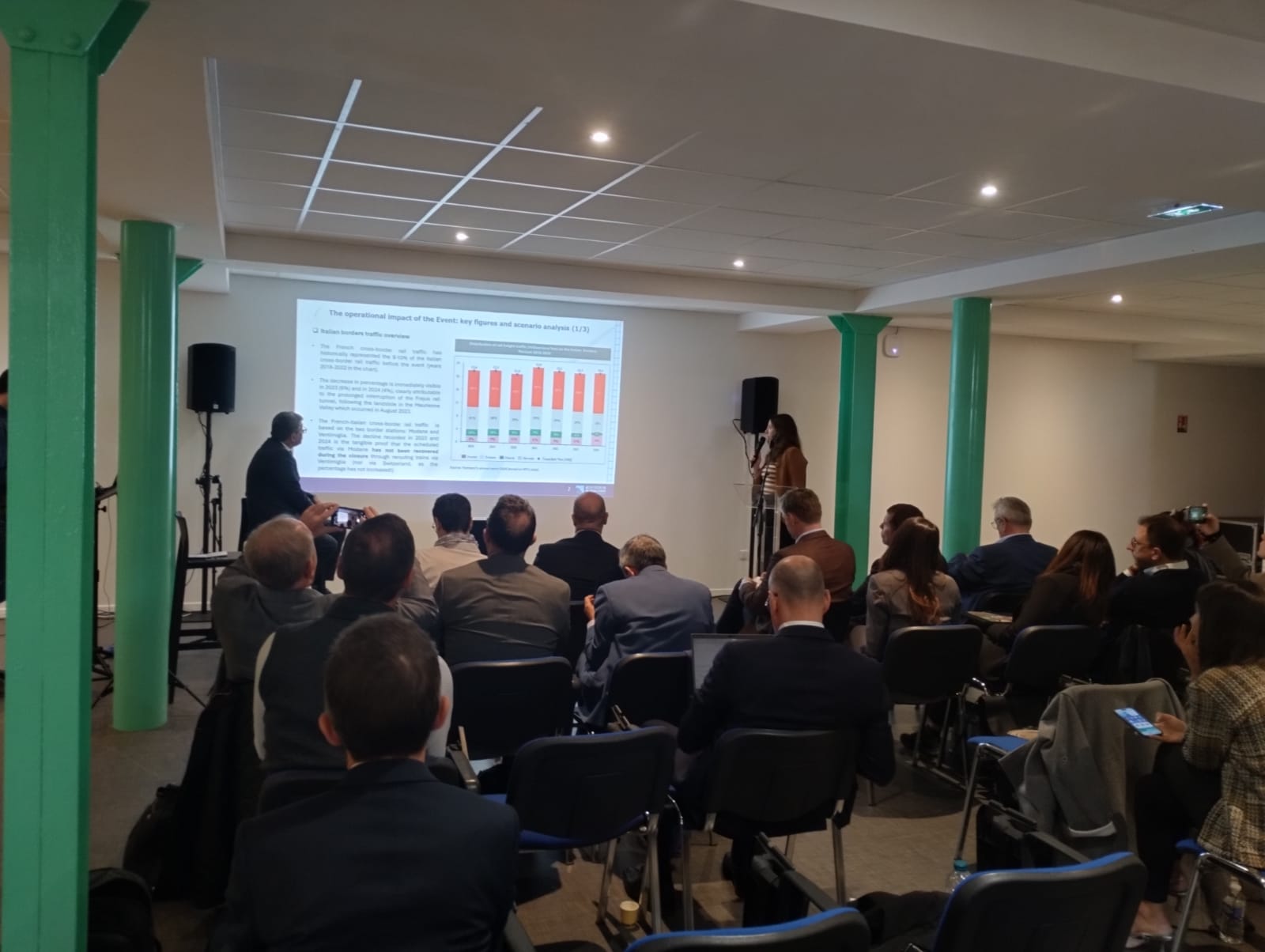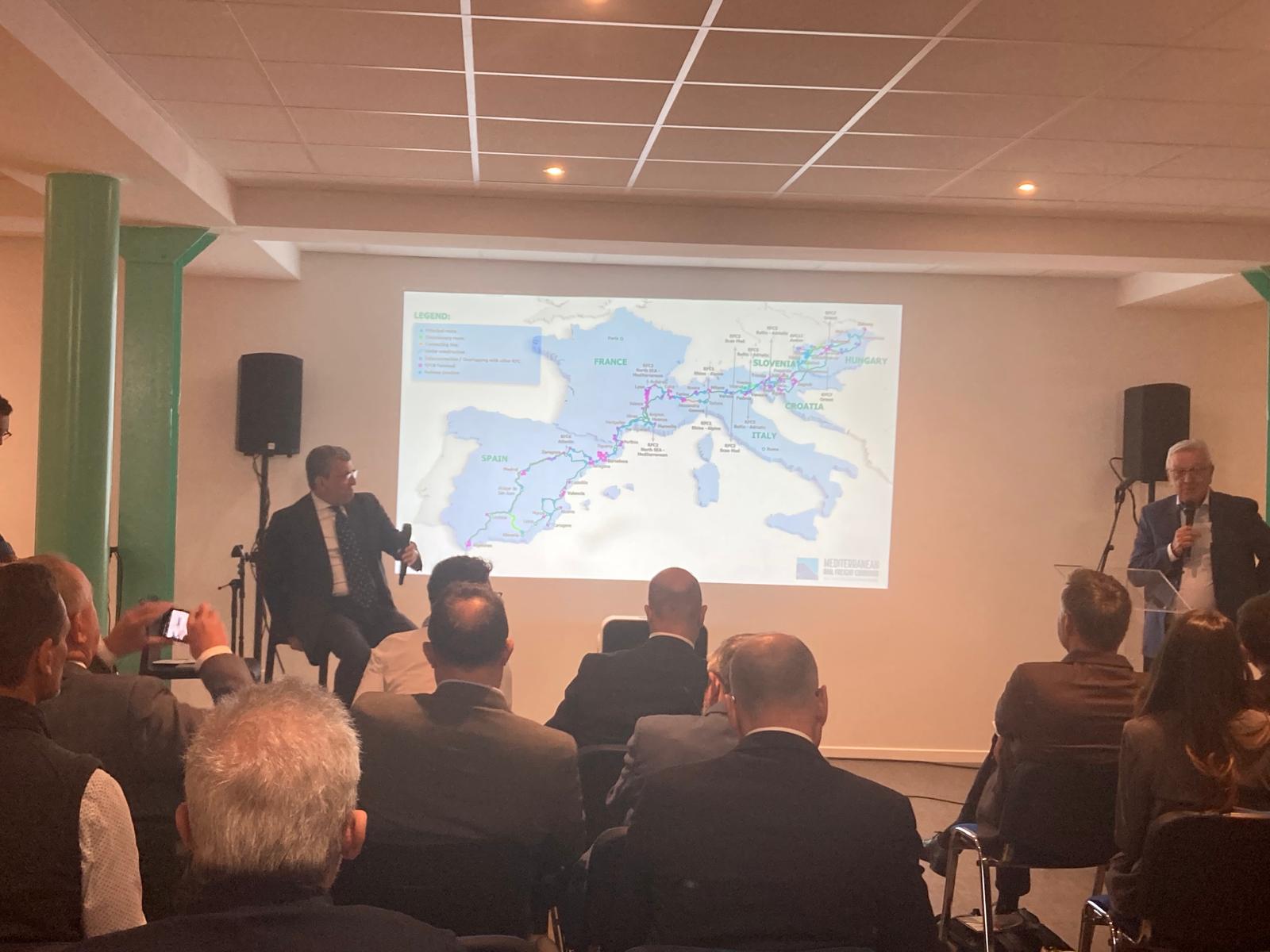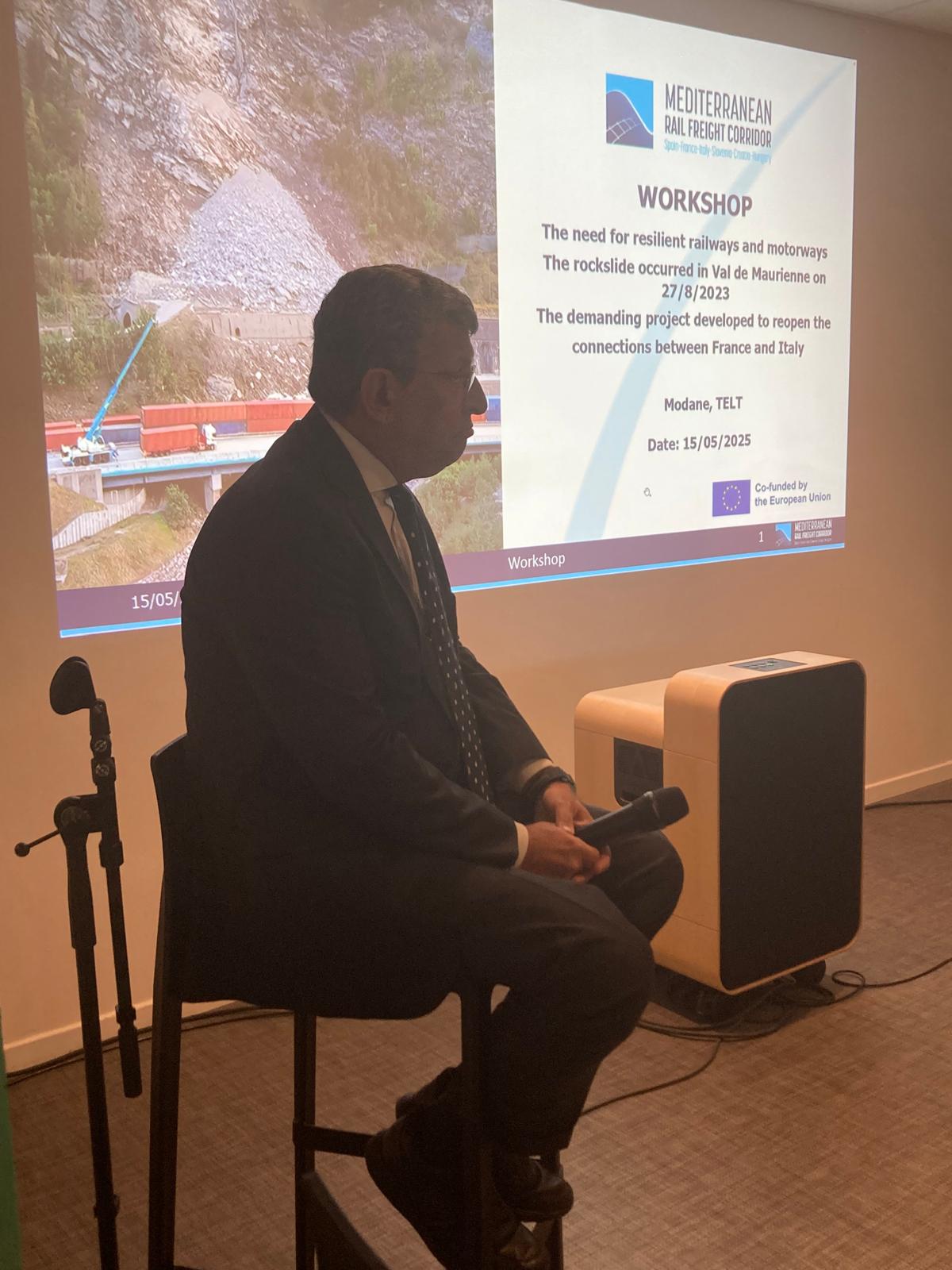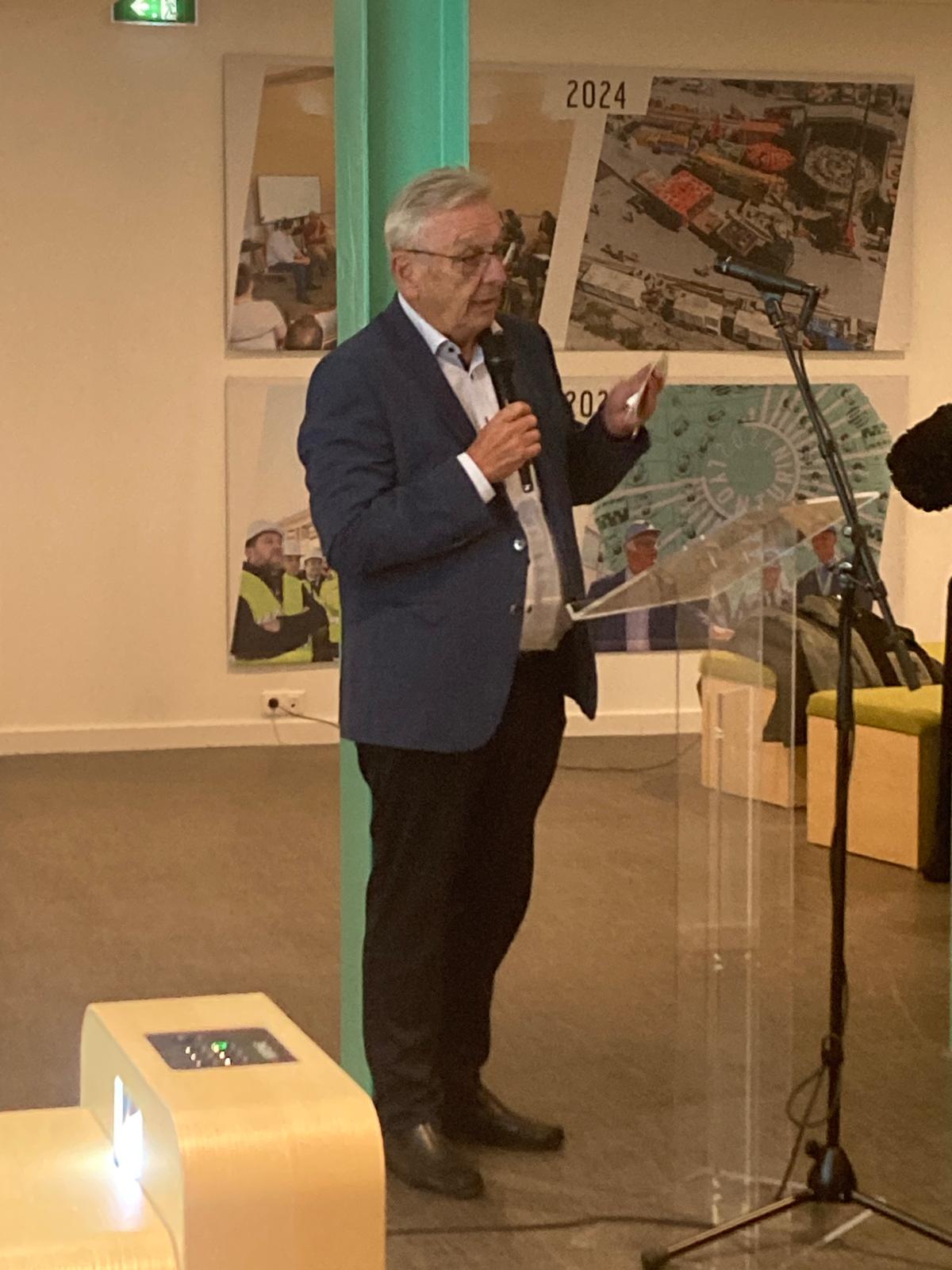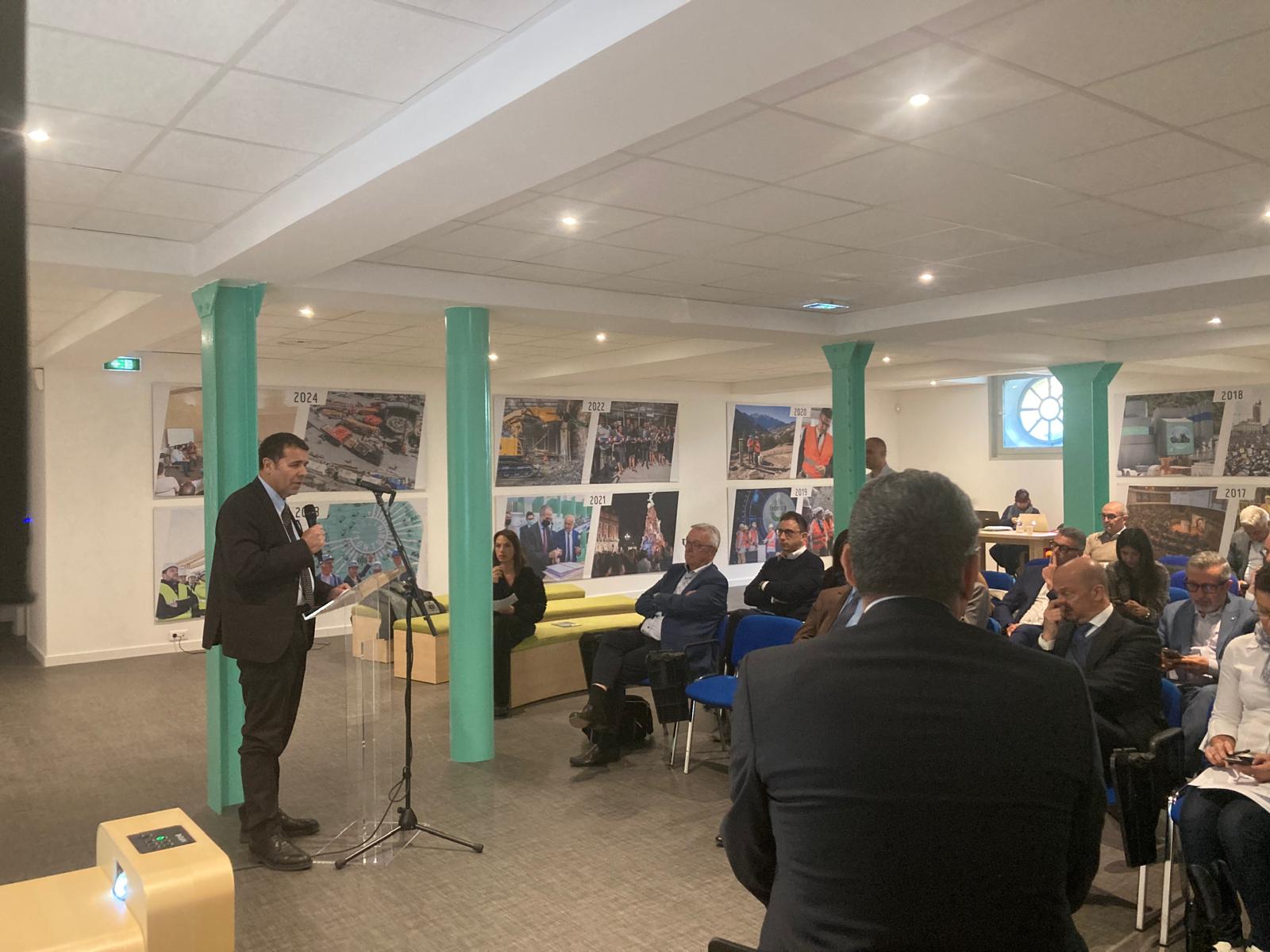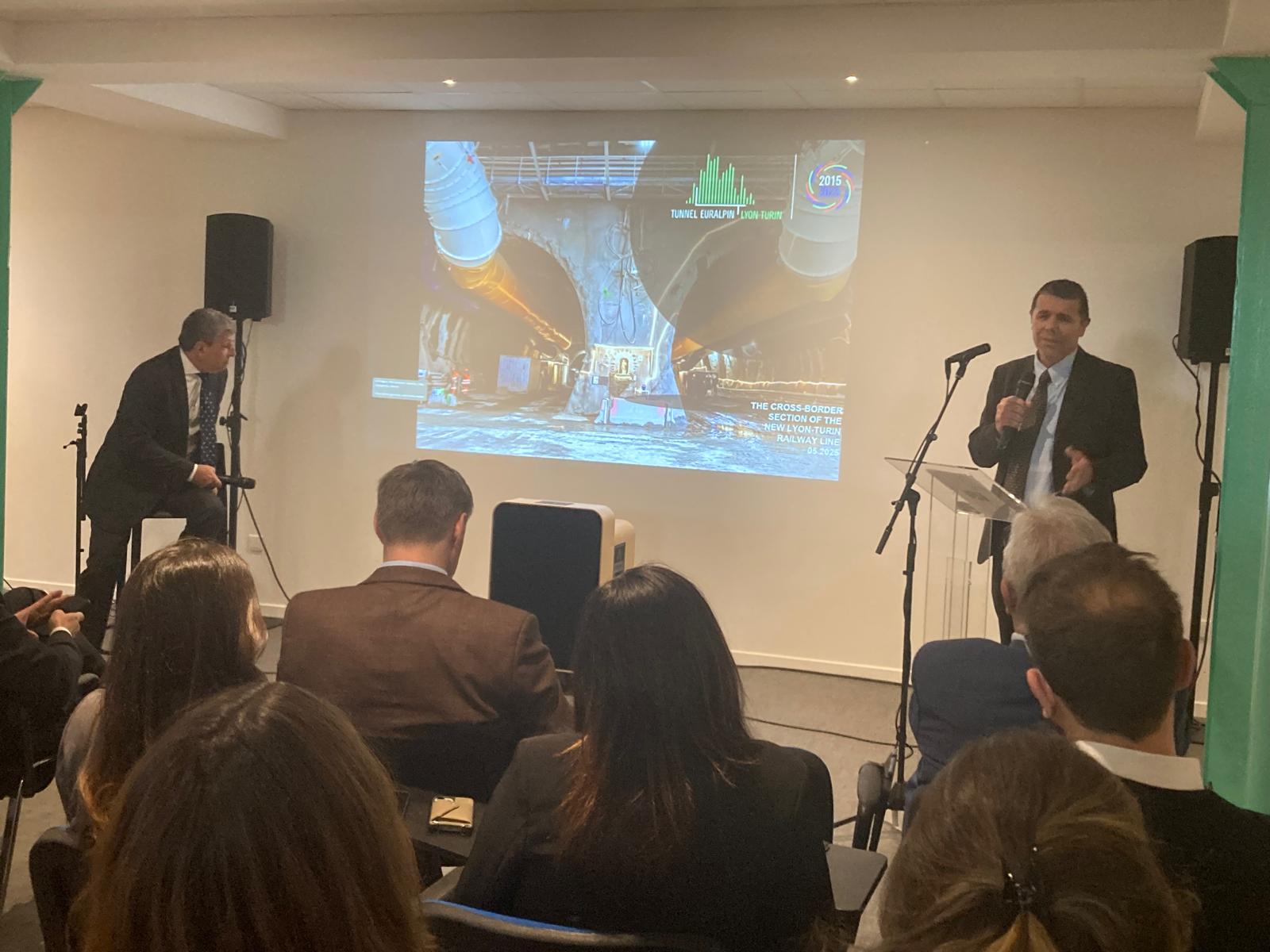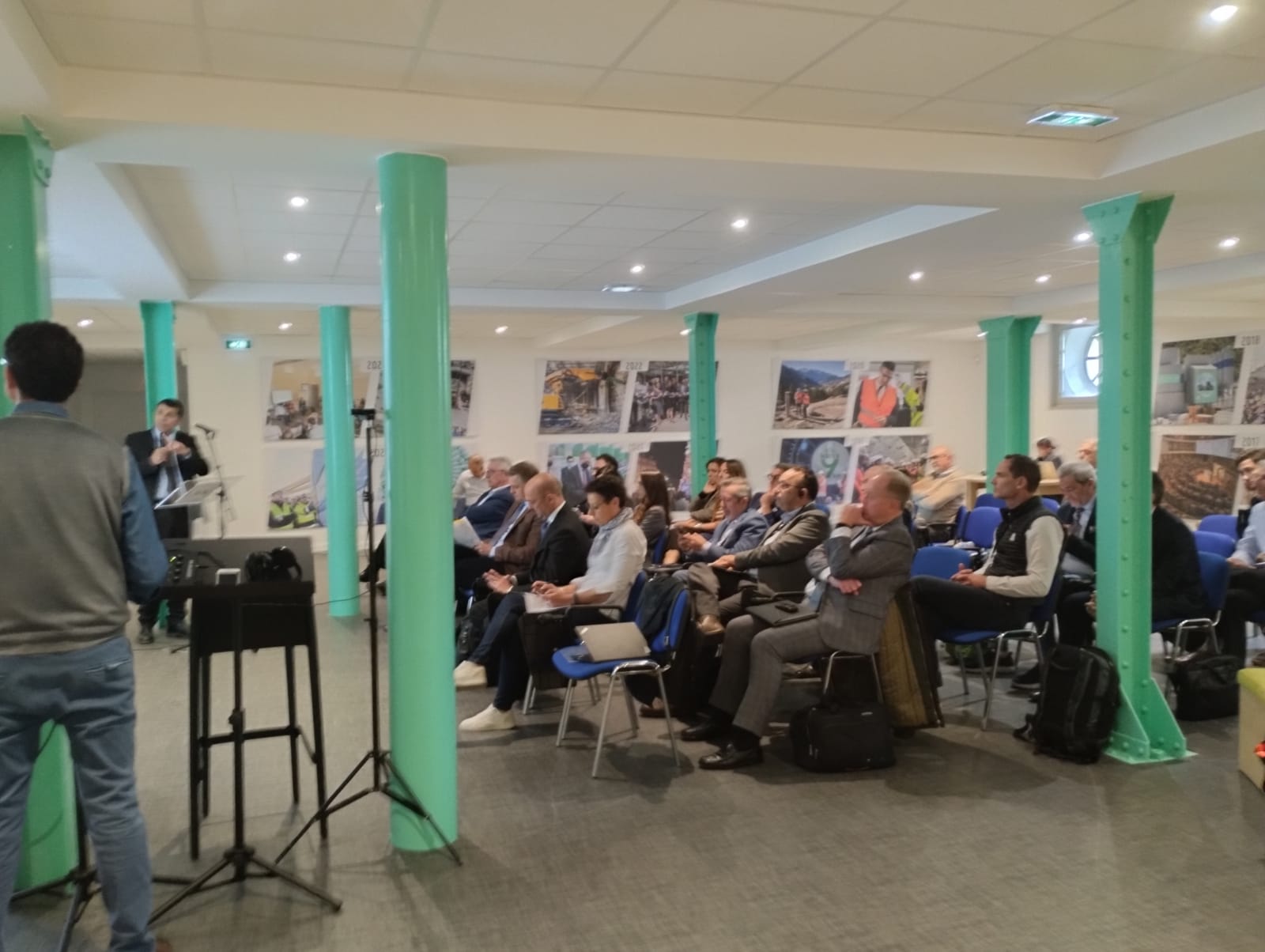The Mediterranean by Rail Restarts with Resilience
Nearly two years after the landslide that paralyzed rail connections between France and Italy through the Maurienne Valley, a technical workshop organized by the Mediterranean Rail Freight Corridor (MedRFC) took place on May 15, in Modane at La Rizerie, la Miason du Lyon-Turin, hosted by TELT. The event brought together infrastructure managers, railway operators, institutional representatives, and European stakeholders to assess the emergency response, the extraordinary measures adopted, and the prospects for a more resilient and interconnected railway system.
A Day of Dialogue and Cooperation
Moderated by MedRFC managing director Raffaele Zurlo, speakers included the mayor of Modane, Jean-Claude Raffin, and the European coordinator of the TEN-T Mediterranean Corridor, Mathieu Grosch, as well as representatives from TELT, SNCF Réseau, SFTRF and other key players in European rail management. All highlighted the importance of strengthening a culture of infrastructure resilience and accelerating strategic projects to ensure continuity in international connections.
The event reaffirmed Modane’s role as both a symbolic and operational hub for the new Franco-Italian rail mobility. A bridge—not only geographic but also institutional and technological—between two countries and between present and future.
A Landslide, a Blockage, a Crucial Test
On August 27, 2023, a massive landslide abruptly halted rail traffic along the Turin–Lyon axis, leading to the closure of both the railway line and the Fréjus Tunnel. The full reopening of the rail connection occurred only on March 31, 2025, after 19 months of interruption that deeply impacted European freight flows.
During the workshop, SNCF Réseau, SFTRF, and the Département de la Savoie – key players in managing the emergency – presented the operations carried out in the complex Alpine context: from safety measures and infrastructure repairs to the management of alternative transport routes. It was a collective effort involving engineers, technicians, and public authorities—a concrete example of coordinated response to an infrastructure crisis.
The emergency response to the La Praz landslide showcased extraordinary technical and human efforts. Over 15,000 m³ of rock collapsed between August 27–28, 2023, leading to 18 months of continuous work. Crews worked 7 days a week, often in extreme weather, with up to 23 rope-access technicians on the cliff simultaneously and 7 radio-controlled machines, including two 50-ton excavators, deployed to protect the rail tunnel. More than 5 km of anchoring and 23,000 m² of protective mesh were installed. This operation, co-financed by the Département de la Savoie, SNCF Réseau, and SFTRF, demonstrated an exemplary partnership that turned a major challenge into a case study of resilience and innovation in Alpine infrastructure management.
TELT and the Long-Term Vision
Maurizio Bufalini, TELT General director, presented the progress of the base tunnel of the Lyon–Turin project, set to become the core of the future European railway axis between the Mediterranean and Northern Europe. The tunnel, currently under construction, is a strategic solution to avoid bottlenecks and strengthen the overall resilience of the system.
The 2023 landslide clearly highlighted the vulnerability of the current cross-border infrastructure. In this perspective, the Lyon–Turin project is not just a technical response but a fundamental step toward a safer, more sustainable rail system aligned with the goals of the European Green Deal.
The Economic Impact and the Challenge of Restarting
Railway companies recalled the economic impact of the long disruption: delays, increased costs, lost freight traffic, and logistical difficulties. The reopening of the line marks not just a return to normal but the beginning of a recovery phase, aiming to regain lost volumes through improved efficiency, interoperability, and service reliability.
The workshop thus served as a key moment for sharing lessons learned and future challenges. Foremost among them: cross-border cooperation, unanimously recognized as essential for building an integrated European rail mobility system.
be admitted in person, in Modane.

